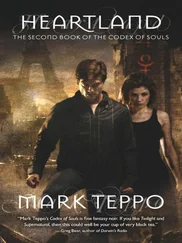The morning after, the empty tray was outside McCabe’s door, with the champagne bottle upside down in the bucket. I decided to say nothing to McCabe or Petrona. Perhaps McCabe was having a painful menstrual period or had lost a bundle of money and was depressed. I was afraid to think the obvious, that Bebe may have been the cause of McCabe’s sudden disappearance. That it was a relapse. I did not want Bebe inside McCabe’s mind, particularly not as she had long been in mine, as a torturous, unattainable ideal. Cruel Bebe, the eternal fourteen-year-old wood nymph, was my exclusive property.
Bebe as she had been at the very beginning, when I first saw her, alone on the outer edge of the male fuck circle, across from me, in the penumbra of sweaty male bodies, her eyes lazily caressing them, almost tactile yet indifferent. A slight young girl in a long, dirty fur coat, unafraid of the men, rats, and sewer effluvia under the last bridge still spanning the East River. We were the only two female watchers. The slow, silent male sexual field separated and consoled us, protective and dangerous, like the river’s black velvety bottom.
It was the night Zoë fled to Constantinople and the splendors of her elderly arms dealer. The night in October, exactly a month after 9/11, when refugee hordes broke out of their resettlement camp in the mainland and tried to enter the island (mixed in with a few marauding cannibals, some say). The Citizen’s Militia repelled them upstream and the river turned red with blood. “There’s not enough rat meat for everyone,” the girl said, as we walked the dark streets. She had just arrived from Nebraska, where things were much worse. “No one’s left there,” she said. “I’ve always been hungry.” She was white but wanted to be black. “Why?” I asked. “I want to sing like a black woman.” She said she was fourteen, but looked twelve and sounded as old as the hills.
That night, she slept on my dingy kitchen floor. I did not offer her my bed. That’s how insignificant she seemed. The next morning, she was gone. But every day she was absent, her presence grew. The details of her body, voice, and gestures became denser and stronger. I craved to see her in the flesh. I looked for her everywhere. One night, when I was beginning to forget her, she knocked on my door, and I was hooked. The electric charge between us was as potent as that in the male fuck circle. Except that we never touched. She refused, once. And I don’t ask twice. But we both kept seducing each other. What fun. All that inexplicable pleasure and grief! All that extreme passion unrelieved by the flesh! Two and a half incandescent years. Then McCabe showed up.
McCabe did not come down to dinner on Wednesday, or any other evening that week, or the next. I could no longer play the ostrich. It was a relapse. McCabe’s mind had to be cleansed of Bebe, emptied of her, and filled with me: with my suffering and humiliation and McCabe’s guilt. I realized that this was not going to happen spontaneously as in a Turgenev novel, because I did not have his lightness of touch. From now on, I would have to tear myself away from the daily joys of cleaning, polishing, and contemplating Shangri-La from the heights of Round Hill, and get to work on McCabe’s coarse brain. Every day. With discipline.
Those two long weeks with no one but Petrona to talk to, I mapped in detail McCabe’s re-education, the necessary condition for her righteous execution. I wrote it in my mind, the only place where I could write without any loss of words. I wrote it in the past tense, to thwart any potential mind reader, civilian or military, human or mechanical.
I have forgotten all but one section of the brain-cleansing method I created for McCabe. Entitled “Humility,” I composed it during my daily searches of Petrona’s car, looking for signs that she was actually taking home the food that McCabe was supposed to have eaten. (What if McCabe was not inside her bedroom and Petrona was her accomplice, secreting the uneaten food in her car?) My searches were thorough, if futile and quick. In the three and a half minutes Petrona spent in the service bathroom shedding her maid uniform and putting on her sad brown dress, I’d scan the interior of the car with a penlight, but mostly I sniffed. My sense of smell was highly developed, closer to a hound’s than a human’s. All gone now, along with my nose. “Humility” remains imprinted in what’s left of my brain because it was born, a line at a time, in the restricted space of Petrona’s dank car, at the same hour each day, with the same smells, light, and shadows. The words come back attached to the seats and the brake, the steering wheel and the filthy mat: “Humility is the ointment that heals all wounds.”
Two weeks later, a tall, emaciated figure glided silently into the dining room. Darkened eyes sunk in bony eye sockets; high, rounded forehead; forceful nose with delicate nostrils; thin lips; closely cropped black hair that revealed a small, well-drawn skull. The carving knife was two inches away from my right hand, but I dared not grab it. The intruder hesitated for a second, then brutally pulled back a chair and sat on it, spreading her knees.
It was McCabe. It had to be. She, a convention from this point on because she was more than that, and also less, had not yet mastered her new body. Every time she jerked her skinny frame about, as if it was still a hundred pounds heavier, I concentrated on my plate, afraid to show any awareness of her change, or her unexplained absence. Fear was the first and most enduring feeling the new McCabe provoked in me. At the time, I thought that it was compassion, fear of breaking the frail reed, the pitiful sack of bones topped by the incongruous half-mute pinhead. Now I see that it was fear not for, but of her, of what she could do to me. Had I recognized it earlier I might not be dying now under this moldy bed. It was, at the beginning, like being confronted with a body snatcher. I even felt sentimental about the old pig McCabe, whom I might never see again. I wished I had gotten to know her better.
The new McCabe ate voraciously and silently, unlike her logorrheic predecessor who forever pecked at her plate. I hardly heard her voice, beyond her short but courteous greeting at the beginning and end of each meal. It was old McCabe’s voice and it wasn’t: equally deep but stripped of its boom and reverberation, perhaps because it was filtered through a thinner frame. The burden of conversation was now entirely on me. None of old McCabe’s hobby horses resonated with her. She smiled tentatively across the table and once put her fork and knife down for a few seconds to indicate that she was listening. But her darkening eyes were pulled back irresistibly to the half-eaten steak on her plate. Conversation was made insubstantial by the intensity of her hunger. “Burning desire” became not a figure of speech at our dinner table, but a physical fact. I often expected her gaze to turn to ashes the meat on her plate, the tablecloth, even my hands, if I left them on the table. She ate noiselessly, so if I didn’t say a word, absolute silence would set in. In that silence I stared at her hands as she cut her steak and held my breath as she lifted each piece to her mouth. I always expected the piece of meat to fall back on the plate because she never stuck the fork in deep enough, but it never did.
She never mentioned her absence or her metamorphosis. Neither did I. We both pretended that nothing had changed. Or perhaps it was just me who pretended. I have no proof that she was aware of her transformation, although I tested her indirectly many times. Once I asked her if she still liked her deerskin moccasins. (Old McCabe had worn them every day. She owned half a dozen pairs, specially handmade for her at the Reservation Penitentiary in what used to be Arizona.) She furrowed her brow and tightened her lips in cartoonish concentration. “I’m not sure,” she finally said. The next day she wore moccasins for the first and only time. They fit her narrow, elongated feet perfectly, as if they had been made for them and not for old McCabe’s E-wide hooves. Her clothes also fit her new frame. They were not unlike fat McCabe’s clothes (I spotted Moschino leather pants and Dolce and Gabbana sweaters), but they looked worn. It was impossible to tell if they were the same clothes, only altered, or altogether different ones. I doubted she would own an identical set several sizes smaller. Unless she had bought them, planning to lose weight in Elmira. This seemed the only logical explanation. That was a favorite word of mine, “logical,” constantly abused to mask my intellectual laziness and moral cowardice, and in this case, pure fear.
Читать дальше












